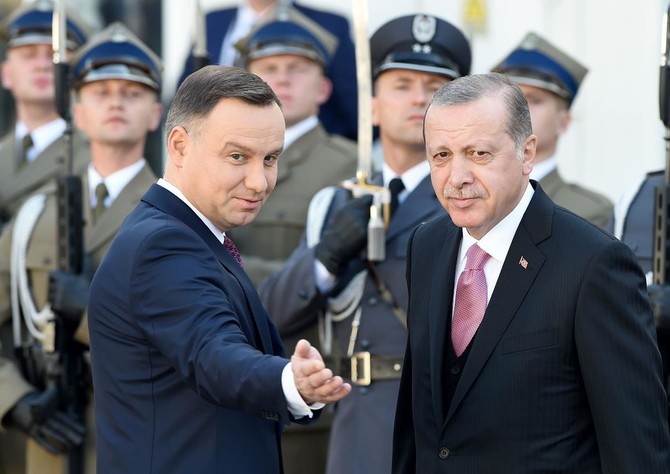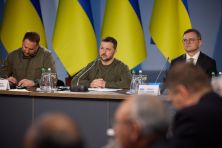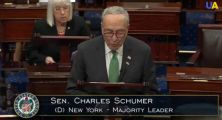Turkey is closely monitoring the tense situation between Russia and Ukraine and continues work on reducing the escalation. Communications Department of Turkey’s Presidential Administration stated it in its press release on the telephone conversation between the Presidents of Turkey and Poland – Recep Tayyip Erdoğan and Andrzej Duda.
“Turkey is closely monitoring tensions between Russia and Ukraine and continues to try to reduce tensions,” Erdoğan told his Polish counterpart.
A week ago, President Recep Tayyip Erdoğan visited Ukraine and met with his Ukrainian counterpart Volodymyr Zelensky. If Turkey is assigned a mediator role following the meeting with Russian President Vladimir Putin, Ankara will accept the offer to help in the Ukrainian crisis in this capacity and will try to do its part, he assured. Erdoğan underlined the sophisticated nature of the relations between Turkey and Russia.
Read also: NATO Secretary General discusses with Erdoğan Russia-Ukraine deescalation issues
Turkey maintains military-political cooperation with Russia. However, for many years, the interests of the two countries have been clashing in Syria. At the same time, Erdoğan sided with official Kyiv on the issue of Crimea and the protection of the rights of the Crimean Tatars.
Over the past four years, Turkey and Ukraine have signed defense contracts worth $ 1 billion. In February 2022, the countries have launched joint production of Bayraktar drones, which Ukraine has been using in the Donbas conflict since October 2021. The countries have also concluded a free trade agreement. Official Ankara declares that military cooperation between Ankara and Kyiv is not directed against Russia and would not be interrupted to please the Kremlin.
Read also: Ukraine to hold military drills engaging Bayraktar drones, Javelin, NLAW missiles
Turkey is an important negotiating point between Russia and the West, as Ankara is controlling significant straits. The Montreux Convention allows only a limited number of warships to pass through the Bosporus and the Dardanelles, the only points of entry into the Black Sea. Of course, Russia does not like this very much, because it limits Kremlin’s ability to massively enter its warships from the Black Sea into the Mediterranean. On the other hand, it also keeps NATO from suddenly breaking into the Black Sea and thus question Russia’s strategic strength in the region.













